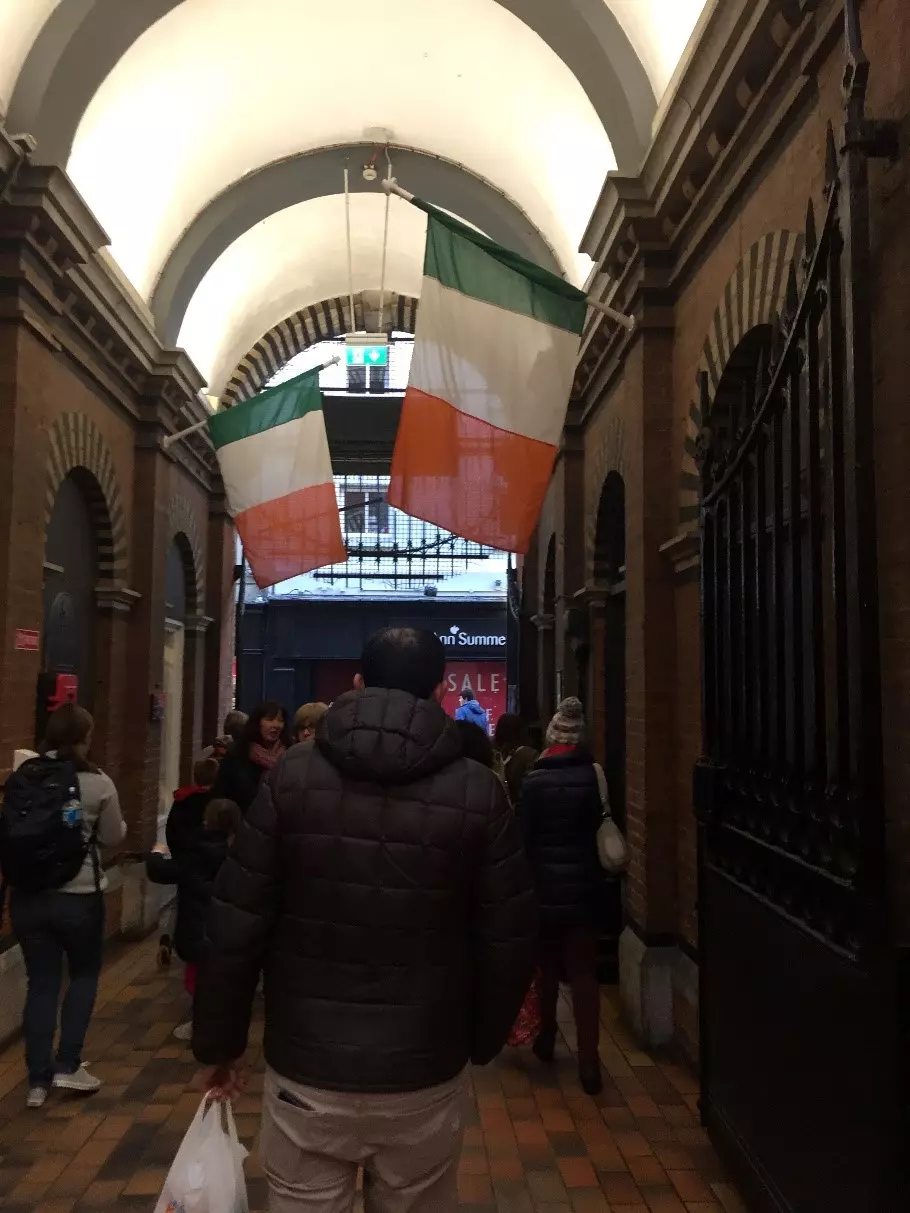Top 7 Ways to Save Money While Studying Abroad In Ireland



Seven Overlooked Ways to Mitigate Financial Stress While Studying Abroad in Ireland
I try to be good at budgeting in the United States, but there are different financial challenges in Ireland. Coming from a college where I have access to a full meal plan and only walk short distances, it took a while for me to settle in to the routine of shopping for my own meals and taking public transportation. Upon arrival, I quickly scoped out local tips for saving money and I have included some of the most useful ideas below.
1. Research
Before you even set foot in Ireland, do some research on the conversion rates between the local currency and United States Dollars (USD). This is not to scare you out of studying abroad because of higher costs, but to use it as motivation for creating a budget (see below). If you want to use a credit card during your time abroad, take note of which credit cards will and will not be accepted in Ireland and plan accordingly. For instance, in Cork MasterCard and Visa are accepted in most locations; whereas, American Express and Discover are generally less widely accepted. For exchanging currency, check the rates of local banks and post offices as these institutions will usually be cheaper.
2. Plan out a Budget
Take time to revisit your budget goals and break down your spending into categories so that you can plan how much money you would like to spend each week. Even if you do not exactly stick to your budget and find yourself buying fancy meals three times a day – do not despair – recognizing when and on what you have spent extra money can help you create a new, improved plan that more accurately reflects the types of things you value. If you want to spend more money on travel than food or basic living expenses, try buying your food and necessities at the English Market, Aldi’s, Lidl or Penney’s. While these might not be the most convenient stores to your location, there are weekly specials and deals of which you can take advantage. Also, bring reusable bags to stores so that you do not have to pay for plastic bags to get groceries.
3. Open a Bank Account
At University College Cork, you can open a free bank account, then pay a one-time €5 Euro fee for a debit card. Even better is the fact that if you transfer enough money to cover expenses for the semester to your Irish bank account, you only have to pay the €7.50-12.50 (depending on the transfer amount) transaction fee once. Otherwise, you have to pay a transaction fee every time you try to withdraw money from an ATM using your debit card from the United States. As an added bonus, having a debit card from a bank within the European Union means that when you travel within the European Union there are no transaction fees.
4. Buy Tupperware Containers

Leftovers are your friends! Whether it is because you are exhausted after a full day of classes or just cannot figure out the Farenheit to Celcius conversion to properly set the oven temperature, having a way to save previously prepared meals is a worthwhile investment. It saves you money and time! You can dress up your typical pasta and get a bigger meal out of it by mixing in different vegetables (I’ve been using whatever is on sale to switch it up). If you are feeling a bit more adventurous try making a whole meal from one recipe – my favorite is stuffed peppers with ground beef, rice and cheese.
5. Carry Cash
You don’t need to always have a lot of cash on you, but understand that if you go out to eat in a group, requesting individual checks is not the norm in Ireland and even if you ask for individual checks, you may not be able to get one. To save yourself the hassle of trying to figure out who owes whom what amount of a very large check at the end of your meal, try to have exact change. Additionally, should you need to take the bus and do not have a Leap Card (see below), you will need to pay in cash.
6. Get a Leap Card
For a Cork City bus the typical adult fare is €2.30 per ride; however, if you get a Leap Card, which costs €5, you are able to get discounted fares on not only Cork City buses (€1.61), but also most buses on the Transport for Ireland system. This enables you to travel to locations close to Cork, but outside of the city for a fraction of the cost. If you plan on taking the bus a lot, you will be able to make back the €5 that you originally spent in order to get the card rather quickly. Just remember to add money to the card once you open it, and if you are running low to add a bit more. Getting your card and adding funds to it can be done at the bus station downtown or at some designated locations in downtown Cork.
7. Take Advantage of your Student ID Card
Many places will offer discounts for students when you present a valid student ID (this does not work with your home university’s student ID sadly). If you are visiting an attraction or grabbing a meal off campus, take the time to look around the website of the place you are visiting or the fine print on the menu to familiarize yourself with the savings options available to you as a student. Almost any tourist attractions that you may visit will offer student rates and some restaurants close to campus offer great student deals for quick lunches.
Kiely G. | Psychology Major and Elementary Education Certificate Candidate at Connecticut College | University College Cork Partnership, in Ireland | Spring 2018 | IFSA International Correspondent